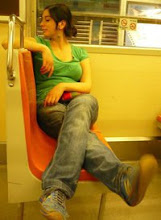Hi Angel!
First at all I'd like to tell you that I totally agree when you mention that sexuality does not determinate people’s quality. On the contrary, sexual inclination should not be a reason or topic to discuss if someone is good or bad person or writer in this case. However, I disagree with many aspects you raised. For example, I do not believe Virginia had preferences to woman just because she just liked or not women. I believe that it’s more than that. She goes beyond literature and gender issue. In fact, she criticizes and analyze why women have never been taken into consideration in literature as men. Fortunately, she started doing it through her essay, which is the one we read. As a way to help, I suggest you to check your spelling. Moreover, you might improve your analysis doing some connections relating literature to education. In that case what you pointed out about Woolf’s sexuality may be an interesting topic to work with students.
Think about it!
=)
viernes, 20 de noviembre de 2009
V.Woolf
sábado, 14 de noviembre de 2009
T.S Elliot - The Waste Land

The
Sources:
http://en.wikipedia.org/wiki/The_Waste_Land
martes, 10 de noviembre de 2009
D. H. Lawrence

“The rocking horse winner” and “Odour of Chrysanthemums” are both short stories of D. H .
In “The rocking horse winner” we can see a mother who does not love her children and feels extremely unlucky because of her husband and marriage. Unfortunately her children noticed that. This mother is more concerned about money and her unlucky life than her own family. Moreover, she seems very good and lovely with her children to external people. One of her children realizes that the only way to be lucky (or probably be loved) is riding his horse. However, the little boy become mad hearing in his mind an strange voice which reveals him the winning horse of the competition. In this way her son tries to make his mother happy, giving her the money, but at the end he died because of his madness, and it was there when the mother started to feel a little bit worried or possibly “love” for her son.
Similarly in the “Odour of Chrysanthemums”, the female character called
In conclusion, D. H Lawrence portrays essentially issues or current events that are closely related to the human nature. The writer explores through his characters what human beings are, how people behave, act and feel in this life.

